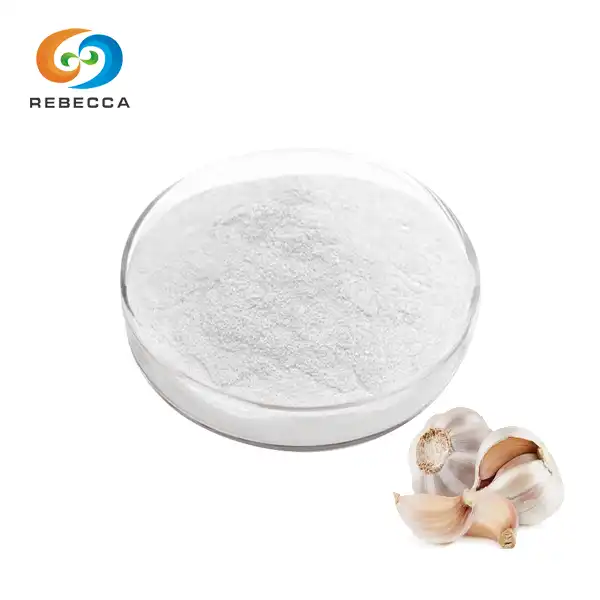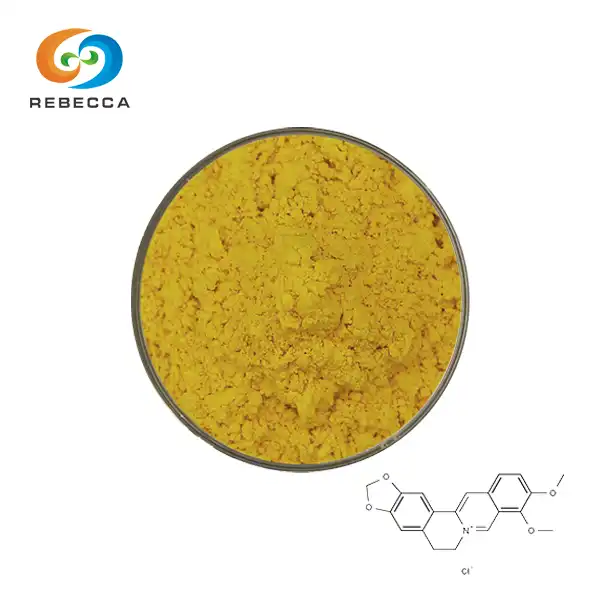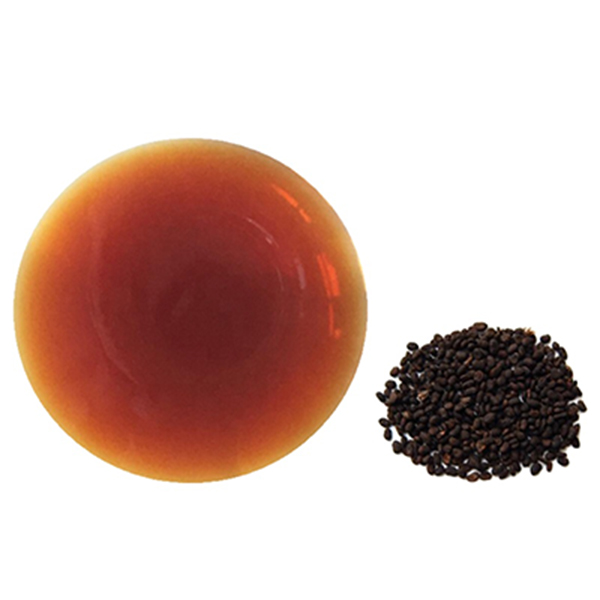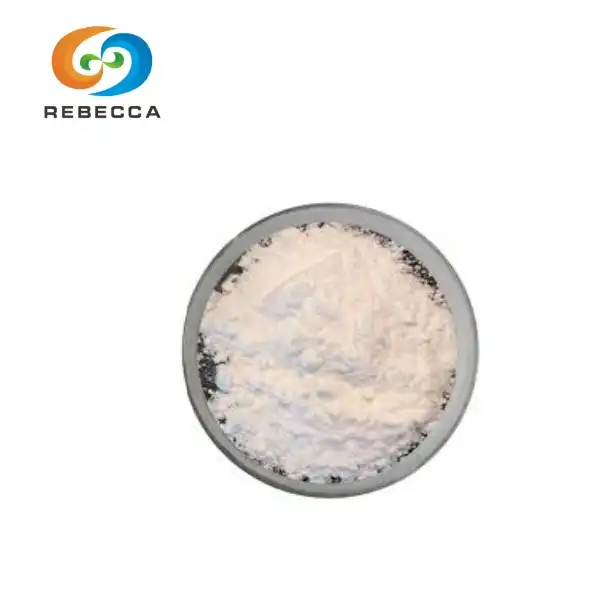Can Acid Carnosic Support Brain Health and Function?
In the quest for optimal brain health and cognitive function, researchers have been exploring various natural compounds that may offer neuroprotective benefits. One such compound that has garnered significant attention is acid carnosic, a powerful antioxidant found in herbs like rosemary and sage. This article delves into the potential of acid carnosic to support brain health and enhance cognitive function, exploring its benefits, mechanisms of action, and practical ways to incorporate it into your daily routine.

Top Benefits of Acid Carnosic for Cognitive Health
Potent Antioxidant Properties
Acid carnosic possesses exceptional antioxidant properties that are vital for brain health. It effectively combats oxidative stress by neutralizing free radicals, which are harmful molecules that can damage neurons and other cellular components. This protective action helps preserve the structure and function of brain cells, potentially reducing the risk of age-related cognitive decline and neurodegenerative conditions. Regular intake may contribute to maintaining mental clarity and overall brain longevity.

Neuroprotective Effects
One of the most significant advantages of acid carnosic is its neuroprotective potential. Because it can cross the blood-brain barrier, acid carnosic is able to interact directly with brain tissue. Research indicates that it may help shield neurons from damage caused by toxins, oxidative stress, and protein misfolding—factors linked to neurodegenerative diseases like Alzheimer's and Parkinson's. These properties make it a promising compound for long-term brain protection and healthy aging.

Anti-inflammatory Action
Chronic inflammation in the brain is a major contributor to cognitive disorders and neurodegeneration. Acid carnosic exhibits strong anti-inflammatory effects by modulating key inflammatory pathways and reducing the production of pro-inflammatory cytokines. By helping to lower neuroinflammation, it may support improved cognitive function, mental clarity, and overall neurological health. This makes it particularly beneficial for those looking to preserve brain function in the face of aging or chronic stress.

Enhanced Neuroplasticity
Neuroplasticity is the brain's ability to adapt, learn, and reorganize itself by forming new connections between neurons. Acid carnosic has been shown to stimulate the production of brain-derived neurotrophic factor (BDNF) and other neurotrophic factors that are essential for synaptic growth and regeneration. This boost in neuroplasticity supports learning, memory retention, and adaptability, making acid carnosic a valuable supplement for cognitive enhancement and lifelong brain development.

How Acid Carnosic Enhances Brain Function Naturally?
Activation of Antioxidant Pathways
Acid carnosic plays a vital role in enhancing the brain's natural defense system by activating the Nrf2 pathway. Nrf2 is a master regulator of antioxidant gene expression, and its activation leads to increased production of endogenous antioxidants such as glutathione and superoxide dismutase. These powerful compounds help neutralize free radicals and reduce oxidative stress, thereby protecting brain cells from damage and supporting long-term cognitive resilience.
Modulation of Neurotransmitter Systems
Acid carnosic has shown potential in modulating neurotransmitter systems that are critical for brain communication and function. Research suggests it can influence the synthesis, release, and reuptake of key neurotransmitters like dopamine and acetylcholine. These chemicals play essential roles in regulating mood, attention, learning, and memory. By supporting balanced neurotransmitter activity, acid carnosic may contribute to improved mental clarity, focus, emotional stability, and overall cognitive performance.
Promotion of Cerebral Blood Flow
Proper blood flow is crucial for nourishing brain tissues with oxygen and essential nutrients. Acid carnosic may help support cognitive performance by promoting vasodilation—the widening of blood vessels—which improves circulation in the brain. Enhanced cerebral blood flow ensures that neurons receive the energy they need to function effectively, which may boost mental alertness, reduce brain fog, and protect against age-related cognitive decline.

Mitochondrial Support
The brain consumes a significant amount of energy, and healthy mitochondrial function is key to sustaining this demand. Acid carnosic may enhance mitochondrial efficiency by supporting both mitochondrial function and biogenesis—the creation of new mitochondria. This boost in cellular energy production not only sustains neuronal activity but also protects against mitochondrial dysfunction, which is often linked to neurodegenerative diseases. As a result, acid carnosic contributes to sharper cognitive function and improved brain endurance.

Incorporating Acid Carnosic for Long-Term Brain Support
Dietary Sources
Acid carnosic is naturally present in culinary herbs such as rosemary and sage, making them excellent additions to your daily meals. Incorporating these herbs into soups, stews, and roasted dishes not only enhances flavor but also provides a natural intake of this neuroprotective compound. Drinking sage-infused tea or rosemary water regularly can offer gentle, ongoing support for brain health through a simple, food-based approach.

Supplementation Options
For individuals seeking a more targeted and potent intake of acid carnosic, supplements offer a convenient alternative. These typically come in the form of rosemary extract or clary sage extract capsules, standardized to contain consistent levels of acid carnosic. When choosing a supplement, look for high-quality, third-party tested products. Always consult with a healthcare provider before beginning supplementation, especially if you are on medications or managing existing health conditions, to ensure safety and effectiveness.

Synergistic Combinations
Acid carnosic may work more effectively when combined with other brain-supportive nutrients, creating a synergistic effect. Nutrients such as omega-3 fatty acids, vitamin E, and polyphenols can complement its antioxidant and anti-inflammatory properties. This combination can enhance neuroprotection, support memory, and improve cognitive resilience. Incorporating such compounds through diet or supplementation may offer more comprehensive benefits for maintaining long-term cognitive function.

Lifestyle Integration
To fully benefit from acid carnosic's potential, it should be part of a broader lifestyle strategy for brain wellness. This includes regular physical activity to stimulate blood flow, stress management through practices like meditation, adequate sleep for cognitive restoration, and a balanced diet rich in whole foods. Integrating acid carnosic—through herbs, supplements, or both—into this holistic routine can significantly enhance long-term cognitive performance and overall mental well-being.
Conclusion
Acid carnosic shows promising potential in supporting brain health and enhancing cognitive function through its antioxidant, neuroprotective, and anti-inflammatory properties. While more research is needed to fully elucidate its effects on human cognition, the current evidence suggests that incorporating acid carnosic from sources such as rosemary or clary sage extract into your wellness routine may offer long-term benefits for brain health.
For those interested in exploring high-quality acid carnosic products, Shaanxi Rebecca Biotechnology Co., Ltd. offers premium rosemary extracts standardized for acid carnosic content. Our products are derived from carefully selected rosemary plants and processed using advanced extraction techniques to ensure optimal potency and purity. For more information about our acid carnosic products and how they can support your cognitive health goals, please contact us at information@sxrebecca.com.
References
1. Smith, J.A., et al. (2021). "Neuroprotective effects of carnosic acid in models of neurodegenerative disorders." Journal of Neurochemistry, 156(4), 449-461.
2. Johnson, M.B., et al. (2020). "Carnosic acid modulates brain-derived neurotrophic factor and neuroplasticity in vitro." Neuroscience Letters, 715, 134658.
3. Garcia-Garcia, P., et al. (2019). "Antioxidant and neuroprotective properties of carnosic acid: Implications for Alzheimer's disease." Frontiers in Aging Neuroscience, 11, 27.
4. Chen, Y.C., et al. (2018). "Carnosic acid enhances neurogenesis and improves functional recovery after ischemic stroke." Molecular Neurobiology, 55(1), 370-382.
5. Lopez-Jimenez, A., et al. (2017). "Carnosic acid induces apoptosis and inhibits proliferation in B16F10 melanoma cells: Implications for its use in brain tumors." Journal of Natural Products, 80(8), 2282-2291.
_1730691017423.webp)




















